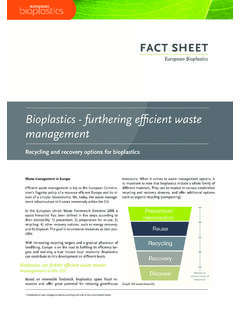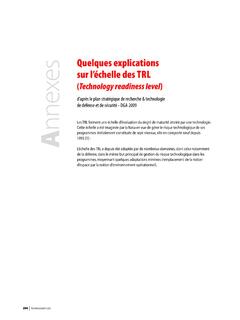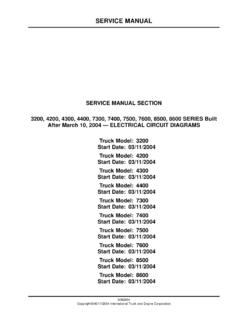Transcription of MECHANICAL RECYCLING - European Bioplastics e.V.
1 BACK. European Bioplastics Marienstr. 19/20 10117 Berlin GROUND European Bioplastics JUL 2020. Marienstr. 19/20, 10117 Berlin phone + 48 23 50. fax + 48 23 59. e-mail web MECHANICAL RECYCLING . VR 19997 Nz, Amtsgericht Charlottenburg, USt-IdNr. DE235874231. HypoVereinsbank Rosenheim, BLZ 711 200 77, Konto 6356800, IBAN DE26 7112 0077 0006 3568 00, BIC/SWIFT HYVEDEMM448. BACK. GROUND. JUL 2020. European Bioplastics Marienstr. 19/20 10117 Berlin European Bioplastics ABSTRACT. Marienstr. 19/20, 10117 Berlin phone + 48 23 50. fax + 48 23 59. MECHANICAL RECYCLING is currently the dominant RECYCLING technique for post-consumer e-mail plastic packaging waste. Sorting web and reprocessing technologies are available in most EU Member States with varying levels of RECYCLING quotas. EU waste legislation requires binding RECYCLING targets in the future.
2 RECYCLING bio-based plastics increases the fossil carbon reduction potential by keeping the renewable carbon in the material cycle even longer. Drop-in bio-based plastics with the same chemical structure are already mechanically recycled together with their fossil-based counterparts. Innovative bio-based plastics with new chemical structures can be commercially recycled once their amounts in the waste streams become high enough to make this feasible from an economic point of view. For some of these bio-based plastics MECHANICAL RECYCLING already takes place at small scale. 1. MECHANICAL RECYCLING TECHNOLOGY LANDSCAPE. Technology description in specialised facilities, designed to separate the different MECHANICAL RECYCLING refers to operations that aim to reco- materials. The proper identification of the materials is essen- ver plastics via MECHANICAL processes (grinding, washing, tial for achieving a maximised purity of recyclates.)
3 For this separating, drying, re-granulating and compounding), thus purpose, various technologies such as near infrared (NIR), producing recyclates that can be converted into plastics laser, or x-ray-based techniques are available. NIR-units are products, substituting virgin plastics. It is also known as widely used and form the state of the art in several Euro- material RECYCLING , material recovery or, related to plastics, pean countries for sorting mixed post-consumer packaging. back-to-plastics RECYCLING . In MECHANICAL RECYCLING , plastic Although sorting technology has increased its accuracy, waste (sorted by material type) is milled and washed, passes sorting efficiency never reaches 100% due to separation a flotation separation, and is dried. The plastic flakes are flaws and laminated or blended products that cannot be then either used directly to produce new plastic materials separated into their original materials.
4 This often leads to or they are processed into granulates beforehand. contamination of recycled plastics with other plastics and all kinds of additives. The quality of sorting processes is also MECHANICAL RECYCLING is used for the recovery of pre-consumer dependent on the efficiency of collection schemes, which (post-industrial) material as well as for post-consumer plastic vary widely even within EU member waste. It is currently the dominating method of RECYCLING post-consumer plastic waste in Europe. For MECHANICAL Reprocessing RECYCLING , only thermoplastic materials are of interest, After cleaning and grinding processes, the materials are polymeric materials that can be re-melted and re-processed recovered through remelting and regranulating. The resulting into products via techniques such as injection moulding or recyclates can be processed with all common technologies extrusion.
5 It is a well-established technology for the material for plastics conversion. During melting and reprocessing, recovery of plastic materials such as polypropylene (PP), high temperatures and shear forces can cause thermal and polyethylene (PE) or polyethylene terephthalate (PET). MECHANICAL degradation of polymers, affecting polymer chain length and distribution. This may influence material Sorting properties, such as crystallinity or MECHANICAL If Post-consumer plastic waste is usually a very inhomogene- the quality is sufficient after sorting and reprocessing, the ous and contaminated waste fraction. It comprises a huge recycled materials can be reused in the same or similar pro- range of material types ( multilayer films, blends, and ducts. By recovering plastic materials for reuse, virgin plastic composites) with shape, colour and size varying widely.
6 Materials are replaced, contributing to a circular economy. Therefore, in a first step, the plastic waste passes extensive However, the resulting quality often only allows the use in manual and/or automated MECHANICAL sorting processes lower value applications (so-called down-cycling). 1. For more information on sorting, please see: Plastics Recyclers Europe: Guidance on quality sorting of plastic packaging. Establishing highly refined packaging waste streams. 2019. 2. VR 19997 Nz, Amtsgericht Charlottenburg, USt-IdNr. DE235874231. Luijsterburg, : MECHANICAL RECYCLING of plastic packaging waste. Technische Universiteit Eindhoven. 2015. HypoVereinsbank Rosenheim, BLZ 711 200 77, Konto 6356800, IBAN DE26 7112 0077 0006 3568 00, BIC/SWIFT HYVEDEMM448. 2. BACK. GROUND. JUL 2020.
7 European Bioplastics Marienstr. 19/20 10117 Berlin European Bioplastics Marienstr. 19/20, 10117 Berlin Technology distribution phone + 48 23 50. In various European countries, plastics collection and recyc- These inconsistenciesfaxmean that official + RECYCLING rates 48 23 59. ling systems are in place, focussing mainly on the major, high are neither very meaningful e-mail nor comparable. The European web volume plastics such as HDPE, LDPE, PET, PP and PS. In Union has started legislative efforts to increase uniform 2018, of post-consumer plastic waste was collected reporting (see below). Data on the amount of waste that is to be recycled in Europe (28 EU member states including not only collected but also actually recycled is scarce. For Norway and Switzerland)3, with MECHANICAL RECYCLING being the Netherlands, in 2018, 47% of used plastic was collected, currently almost the sole form of RECYCLING in Europe.
8 The of which 33% was actually recycled a total RECYCLING rate RECYCLING rates for post-consumer plastic waste vary widely of only 16%.5 Furthermore, there is a wide range of post- among EU member states, from around 20% in Bulgaria consumer plastics, which are not being recycled because and Finland to up to 45% in Variation in numbers of their low volume or complexity, such as multilayer films, is due to different calculation methods and differences in blends, composite items, and items contaminated with food definitions. In some Member States, the amount of waste that or other residues. It is expected that with further improve- enters pre-treatment, such as sorting, is already calculated ments in product design, waste collection and treatment, as being recycled, other countries also count waste that is the volume of recycled plastics will increase.
9 Being exported as recycled. Figure 1: Plastic post consumer waste rates of RECYCLING , energy recovery and landfill per country in 2018. Source: Plastics Europe. Plastics the Facts 2019. 3. PlasticsEurope, Plastics the Facts, 2019. 4. Ibid. 5. Plastics Europe: Levenscyclus van plastics in Nederland. 2018. VR 19997 Nz, Amtsgericht Charlottenburg, USt-IdNr. DE235874231. HypoVereinsbank Rosenheim, BLZ 711 200 77, Konto 6356800, IBAN DE26 7112 0077 0006 3568 00, BIC/SWIFT HYVEDEMM448. 3. BACK. GROUND. JUL 2020. European Bioplastics Marienstr. 19/20 10117 Berlin European Bioplastics 2. REGULATORY FRAMEWORK, STANDARDS AND phone LABELLING. Marienstr. 19/20, 10117 Berlin + 48 23 50. fax + 48 23 59. EU RECYCLING targets ducts by Thise-mail is supposed to boost awareness and web In the European Union, the legal framework for MECHANICAL demand and shall be achieved by reliable self-commitments RECYCLING is laid down in the Waste Framework Directive of the industry.
10 2008/98/EC (WFD), the Packaging and Packaging Waste Directive 94/62/EC (PPWD) and the Landfill Directive 1999/31/ Standards and Labelling EC (indirectly). The standardisation of recycled plastics largely has been driven by the Packaging and Packaging Waste Directive EU legislation poses new requirements to the plastics and 94/62/EC (PPWD). It requires that Member States ensure RECYCLING industry, extending the share of RECYCLING over time. that packaging complies with the Essential Requirements . In May 2018, a new European waste legislation package (laid down in Annexe II of the PPWD), which have been was adopted, which sets out new legally binding targets for translated into standards by CEN. Plastic RECYCLING and RECYCLING , within the EU's drive towards a Circular Economy6.



